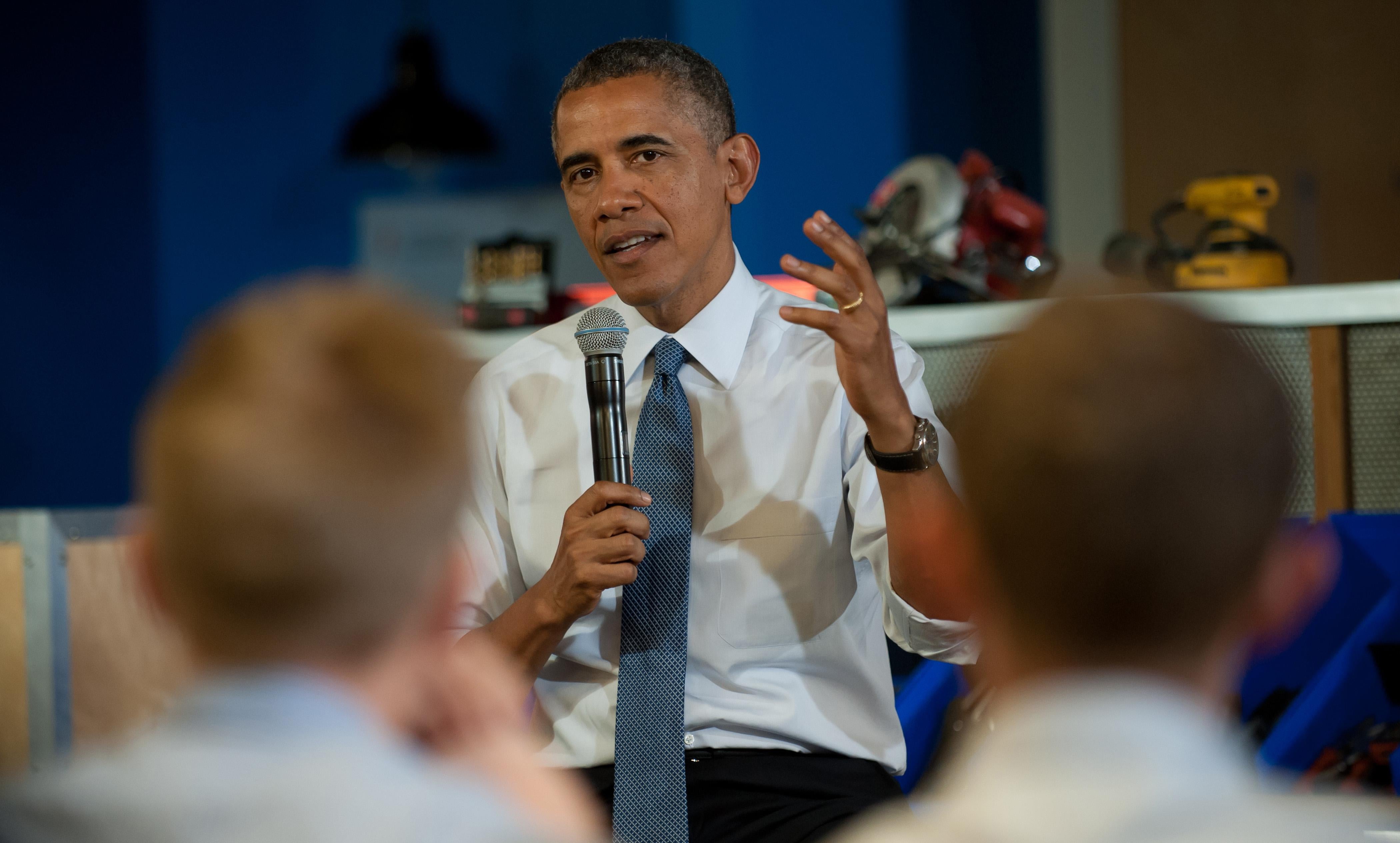A White House badly in need of some good news on the international front got some today with the capture of Ahmed Abu Khattala, a senior leader of the militant group Ansar al-Sharia and one of the primary suspects in the 2012 Benghazi attack that killed Ambassador Christopher Stevens and three other Americans. Abu Khattala’s capture may also show that the administration, which has been criticized for its reliance on lethal drone strikes and its failure to close the detention facility at Guantánamo Bay, has settled on a preferred method for dealing with senior terrorist leaders.
Abu Khattala was captured near Benghazi over the weekend by the military, working with the FBI, and he is currently en route to the U.S., where it seems as if he will be charged in the civilian court system. His current whereabouts are unknown.
The operation is reminiscent of the raid last fall that resulted in the capture of al-Qaida operative Abu Anas al-Libi in Tripoli and the 2011 capture of the Somali terror suspect Ahmed Abdulkadir Warsame. Both men were held for questioning on Navy ships before being turned over to the civilian justice system in the United States to face trial. Abu Khattala is likely be interrogated under similar circumstances right now.
The legality of snatching suspects on foreign soil and questioning them without Miranda rights is pretty dubious. But the administration seems to have settled on this as a method that combines a military approach justified by the Authorization for the Use of Military Force against al-Qaida and the desire to avoid adding to Guantánamo’s ranks at a time when the White House is attempting to shut it down.
The White House’s Republican congressional critics aren’t satisfied with the approach, arguing that Abu Khattala should be sent to Gitmo as an enemy combatant, but the courts seem satisfied with the hybrid civilian/military model. Just a few weeks ago, a judge in the U.S. District Court in Manhattan ruled that al-Libi could be tried, despite the defendant’s arguments that his detention and interrogation onboard a U.S. Navy ship in the Mediterranean for seven days were illegal. Warsame pleaded guilty in New York in 2011.
This method of dealing with terrorist leaders—covert snatch-and-grab followed by secret extraterritorial interrogation followed by civilian trial—may be politically expedient for the White House, but it only really works with countries like Libya and Somalia that aren’t really in a position to object to unannounced incursions by the U.S. military on their soil.
There doesn’t appear to have been much effort to work with Libya’s fragile government in the lead-up to the raid, though it was reportedly delayed after violent uprisings in the country out of fear that it would further destabilize the situation. A member of the Libyan Congress admitted to the Washington Post that “the government’s inability to go after people like this has put us in a situation where we have to accept such raids.”
With the notable exception of the Bin Laden raid, the U.S. seems to have avoided unannounced operations like this in (relatively) more stable countries like Pakistan, relying instead on unmanned drones. Judging by last week’s events, that doesn’t appear to be changing anytime soon.
